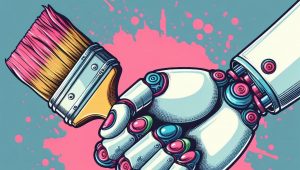Diversity, Authenticity, and Challenging Biases: ExchangeWire Joins Seedtag’s AdTech Heroes Podcast at Cannes
by on 28th Jun 2023 in News

At this year’s Cannes Lions festival, ExchangeWire was delighted to partner with Seedtag for a special episode of the company’s AdTech Heroes Podcast.
Streamed live from Stagwell’s Sport Beach, “Beyond the Labels: Breaking Stereotypes in Advertising” saw ExchangeWire CEO Rachel Smith join host Dal Gill, VP global partnerships at Seedtag, Ben Homer, worldwide performance director at mSix&Partners, Ritu Lakhanpal, global managing partner at IPG Mediabrands, and Karan Singh, head of international partnerships at Microsoft, to consider the complexities of advertising, plus the increasing prevalence of diversity and what players across the ad industry can do to promote diversity.
Progress is gradual but tangible
The general consensus across the panel was that diversity is becoming increasingly prevalent within ad tech and some progress has been made towards elevating it as a priority. “I feel as though diversity is much higher up the agenda for every business in the advertising and marketing industry and that is very gradually being reflected in industry events,” Rachel remarked. When industry events lack diversity, as Gill notes, it is “being called out”, however a lack of diversity goes beyond all-male panels or the absence of non-white contributors he argues. “If you’ve got people all from the same company or the same experience, the perspective will be the same”, Gill asserts, noting that the least successful industry discussions tend to be ones where all panellists are in agreement. Singh elaborated on this, observing that, “We’re not going to change who the subject matter experts are overnight, and I don’t think we should try for the sake of having diverse panels. What we should be doing is getting the talent through”.
Balancing diversity and authenticity
One of the key areas of discussion focused around the purpose of diversity, particularly how it relates to authenticity. Karan noted that advertising should serve as “a reflection of society”, and outlined the danger of advertisers falling into inauthenticity despite good intentions: “I don’t want every single creative to be based around stuff that is trying to be so diverse that it actually loses the reality of what things look like. It’s not authentic, it’s artificial,” he asserted. Rachel concurred with this, emphasising the need for advertisers to approach diversity with a clear purpose, stating, “you can’t have an authentic message if you don’t understand why you’re putting this messaging out there.”
Ritu Lakhanpol agreed with this sentiment, but with the caveat that strides towards diversity must always be connected to an organisation’s wider goals. “Everyone knows [championing diversity] is the right thing to do, but the point is around commerciality, connecting it back to the bottom line, goals, and measurement.” As Lakhanpol noted, however, creating a more inclusive and diverse working environment has shown to improve business outcomes, citing research from Deloitte. The conversation around diversity, Lakhanpa stated, “is connected to strong business results. I think it’s good to remind ourselves that there is a payback for making those decisions.”
Challenging biases in technology
Speaking about the process of targeting audiences for campaigns, Ben Homer detailed the divide between the human element and automation, emphasising that marketers have a responsibility to “make decisions that are inclusive”. Outlining the need to consider who and how each campaign targets, Homer asserted, “It’s a very grey area but we have to do our best as humans to make sure we are being as open and as diverse as we can be.” This issue was elaborated on as the panel discussed biases within technology, with Singh noting, “technology is a reflection of our biases; it’s a facilitator that’s only as good as it’s set up to be.” The panel considered the impact evolving societal attitudes towards diversity and emerging technology may have, with Rachel stating, “the whole point of tech and automation is that it takes off at a pace which humans don’t necessarily always operate at. I think the use and adoption of AI tools will give us some other causes for reflection.” As technology advances, however, Rachel concluded that the human element remains imperative “to continue pushing our biases” and sustain diversity as an unwavering priority.
Ad TechAdvertisingCannesDiversity








Follow ExchangeWire